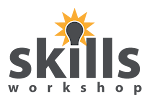 I’m cock-a-hoop about numeracy elements today. At long last - after more than seven years - the site has complete coverage of every single adult numeracy element (Entry 1- Level 2).
I’m cock-a-hoop about numeracy elements today. At long last - after more than seven years - the site has complete coverage of every single adult numeracy element (Entry 1- Level 2).Thanks must go to Jane Kay for providing two separate resources that between them cover the last three ‘missing elements’.
MSS1/E2.8 Read and compare positive temperatures in everyday situations such as weather charts (a) understand that temperature is a measure of heat (or cold) (b) understand that weather temperature is measured in degrees Celsius in the UK (but that different scales exist).
MSS1/E2.9 Read simple scales to the nearest labelled division (a) understand that scales measure in different units (b) understand labelled divisions on different scales.
MSS1/E3.9 Read, measure and compare temperature using common units and instruments (a) know how to read a thermometer (b) understand that temperature can be measured on different scales, but that Celsius is the standard scale in the UK.
It wasn’t pure chance of course. Everyone who has contributed to the site receives a monthly newsletter which now includes a ‘wanted’ list. This month it was emailed to more than 150 contributors. The number of contributors now increases by about 8-10 per month although that will doubtlessly slow down over the summer break.
The monthly site stats are always updated just before the email is sent out and this sly tactic provokes friendly competition between some contributors (you know you are!).
For those of you that are not contributors - I have summarised this month's wish list (having first joyfully omitted the now redundant list of 'missing numeracy elements').
WANTED!We now have resources for most elements of the adult literacy and numeracy curricula. However, elements that are not covered (or only covered briefly) include:
preEntry milestones 6, 7 (many literacy and numeracy elements)
Entry 2 listening, speaking and discussion resources. Especially:
SLlr/E2.1 listen for and follow the gist of explanations, instructions and narratives.
SLd/E2.1 follow the gist of discussions.
SLlr/E2.5 listen to and identify simply expressed feelings and opinions.
SLlr/E2.3 listen for and identify the main points of short explanations or presentations.
Level 2 speaking and discussion resources. Especially:
SLc/L2.2 make requests and ask questions to obtain detailed information in familiar and unfamiliar circumstances.
SLd all discussion elements i.e.
SLd/L2.1 make relevant contributions and help to move discussions forward.
SLd/L2.2 adapt contributions to discussions to suit audience, context, purpose and situation.
SLd/L2.3 use appropriate phrases for interruption and change of topic.
SLd/L2.4 support opinions and arguments with evidence.
SLd/L2.5 use strategies intended to reassure, e.g. body language and appropriate phraseology.
Level 2 reading
Rt/L2.4 Read an argument and identify the points of view.
Rt/L2.5 Read critically to evaluate information and compare information, ideas and opinions from different sources.
Rt/L2.8 summarise information from longer documents.
Handwriting resources for higher levels. Produce legible text Ww/E3.3 L1.1 L2.1.
So - there's no cause for me to rest on my laurels just yet!
In fact, I have a funny feeling that even if complete coverage was ever achieved - that glorious day would be instantly followed by the swapover to Functional Skills with a whole bunch of new curriculum elements describing the same old basic skills we all know and love...
I'll finish with the final, less-daunting section of this month's wish list.
Topical resources also needed for:
Beijing Olympics or general Olympics
General spring/summer resources e.g. camping, beaches, air flights, barbecues, swimming, etc.
Contextual resources for any vocational areas. E.g. beauty therapy, construction, motor vehicles, catering, hairdressing, care, plumbing, etc.
Any help with any of these (or any other) topics is always VERY MUCH appreciated





1 comment:
Thanks for writinng this
Post a Comment